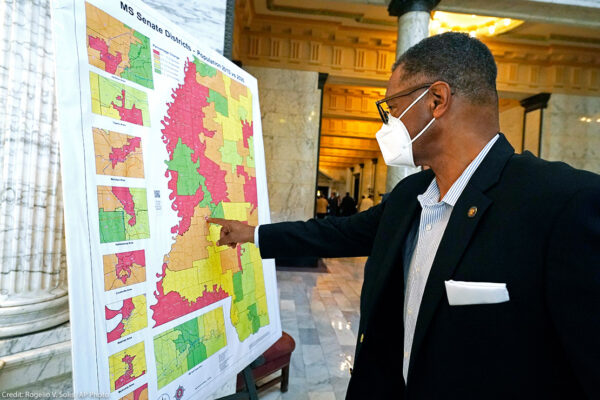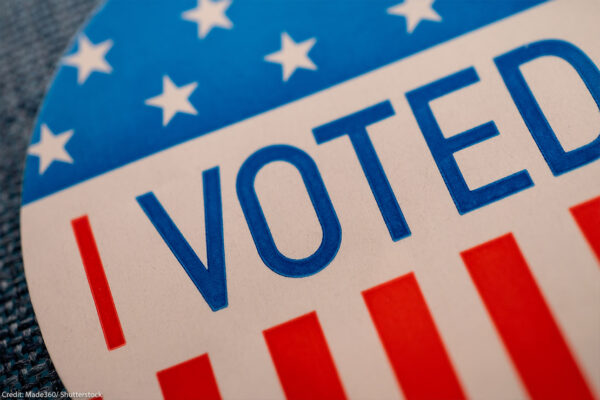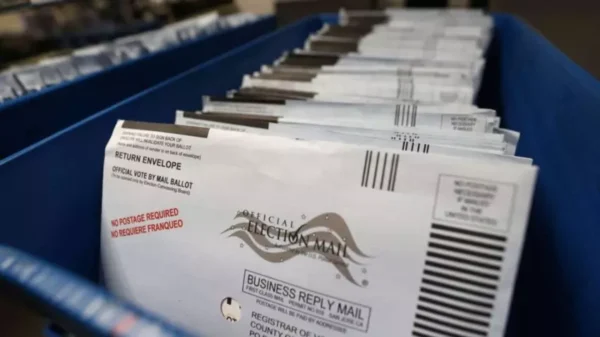Supreme Court Term 2025-2026
We’re breaking down the cases we've asked the court to consider this term.
Latest Case Updates
Ongoing
Updated December 10, 2025
Ongoing
Updated December 10, 2025
Ongoing
Updated November 22, 2025
Ongoing
Updated November 10, 2025
Featured
Court Case
Dec 2025

National Security
Human Rights
FOIA Case Seeking the Trump Administration’s Legal Justification for Deadly Boat Strikes
The Department of Justice‚Äôs Office of Legal Counsel (‚ÄúOLC‚ÄĚ) authored a legal opinion that reportedly claims to justify the Trump administration‚Äôs illegal lethal strikes on civilians in boats in the Caribbean Sea and eastern Pacific Ocean. Media reports indicate that, in addition to claiming that the strikes are lawful acts in an alleged ‚Äúarmed conflict‚ÄĚ with unspecified drug cartels, the OLC opinion also purports to immunize personnel who authorized or took part in the strikes from future criminal prosecution. Because the public deserves to know how our government is justifying these illegal strikes, and why they think the people who carried them out should not be held accountable, the ļž–” ”∆Ķ is seeking immediate release of the OLC legal opinion and related documents pursuant to the Freedom of Information Act.
U.S. Supreme Court
Nov 2025

Voting Rights
Racial Justice
Allen v. Milligan
Whether Alabama’s congressional districts violate Section 2 of the Voting Rights Act because they discriminate against Black voters. We succeeded in winning a new map for 2024 elections which, for the first time, has two congressional district that provide Black voters a fair opportunity to elect candidates of their choosing despite multiple attempts by Alabama to stop us at the Supreme Court. Despite this win, Alabama is still defending its discriminatory map, and a trial was held in February 2025 to determine the map for the rest of the decade.
In May 2025, a federal court ruled that Alabama's 2023 congressional map both violates Section 2 of the Voting Rights Act and was enacted by the Alabama Legislature with racially discriminatory intent.
Washington, D.C.
Oct 2025

Voting Rights
League of Women Voters Education Fund v. Trump
On March 25, 2025, in a sweeping and unprecedented Executive Order, President Trump attempted to usurp the power to regulate federal elections from Congress and the States. Among other things, the Executive Order directs the Election Assistance Commission‚ÄĒan agency that Congress specifically established to be bipartisan and independent‚ÄĒto require voters to show a passport or other citizenship documentation in order to register to vote in federal elections. If implemented, the Executive Order would threaten the ability of millions of eligible Americans to register and vote and upend the administration of federal elections.
On behalf of leading voter registration organizations and advocacy organizations, the ļž–” ”∆Ķ and co-counsel filed a lawsuit to block the Executive Order as an unconstitutional power grab.
U.S. Supreme Court
Oct 2025

Voting Rights
State Board of Election Commissioners v. Mississippi State Conference of the NAACP
Mississippi has a growing Black population, which is already the largest Black population percentage of any state in the country. Yet. Black Mississippians continue to be significantly under-represented in the state legislature, as Mississippi’s latest districting maps fail to reflect the reality of the state’s changing demographics. During the 2022 redistricting process, the Mississippi legislature refused to create any new districts where Black voters have a chance to elect their preferred representative. The current district lines therefore dilute the voting power of Black Mississippians and continue to deprive them of political representation that is responsive to their needs and concerns, including severe disparities in education and healthcare.
U.S. Supreme Court
Oct 2025

Voting Rights
Louisiana v. Callais (Callais v. Landry)
Whether the congressional map Louisiana adopted to cure a Voting Rights Act violation in Robinson v. Ardoin is itself unlawful as a gerrymander.
Missouri
Sep 2025

Voting Rights
Wise v. Missouri
In unprecedented fashion, the State of Missouri has redrawn the district lines used for electing members of Congress for a second time this decade. These new district lines are gerrymandered and will harm political representation for all Missourians, particularly Black residents in Kansas City, who have been divided along racial lines.
Mississippi
Aug 2025

Voting Rights
White v. Mississippi State Board of Elections
District lines used to elect Mississippi’s Supreme Court have gone unchanged for more than 35 years. We’re suing because this dilutes the voting strength of Black residents in state Supreme Court elections, in violation of the Voting Rights Act and the U.S. Constitution.
Louisiana
Aug 2025

Voting Rights
Nairne v. Landry
Nairne v. Landry poses a challenge under Section 2 of the Voting Rights Act of 1965 to Louisiana’s House and Senate legislative maps on behalf of plaintiff Black voters and Black voters across the state.
Ohio
Jul 2025

Reproductive Freedom
Planned Parenthood Southwest Ohio Region et al., v. Ohio Department of Health, et al.
The ļž–” ”∆Ķ, the ļž–” ”∆Ķ of Ohio, Planned Parenthood Federation of America, the law firm WilmerHale, and Fanon Rucker of the Cochran Law Firm, on behalf of Planned Parenthood Southwest Ohio Region, Planned Parenthood of Greater Ohio, Preterm-Cleveland, Women‚Äôs Med Group Professional Corporation, Dr. Sharon Liner, and Julia Quinn, MSN, BSN, amended a complaint in an existing lawsuit against a ban on telehealth medication abortion services to bring new claims under the Ohio Reproductive Freedom Amendment, including additional challenges to other laws in Ohio that restrict access to medication abortion in the state.
All Cases
1,643 Court Cases

New Jersey
Aug 2025
Criminal Law Reform
Romano v. Warden, FCI Fairton (Amicus)
This case challenges the federal government’s authority to remove people from their homes, jobs, and loved ones and remand them to federal prison absent any alleged violation or process.
Explore case
New Jersey
Aug 2025

Criminal Law Reform
Romano v. Warden, FCI Fairton (Amicus)
This case challenges the federal government’s authority to remove people from their homes, jobs, and loved ones and remand them to federal prison absent any alleged violation or process.

Nevada Supreme Court
Aug 2025
Capital Punishment
Ybarra v. Warden
This case presents the question of whether the execution of a capital defendant with serious mental illness violates Article I, section 6 of the Nevada Constitution, which prohibits cruel or unusual punishment. The ļž–” ”∆Ķ‚Äôs Capital Punishment Project and State Supreme Court Initiative, along with the ļž–” ”∆Ķ of Nevada, filed an amicus brief arguing that a plain reading of Article I, section 6 of the Nevada Constitution provides broader protections than the Eighth Amendment and should be interpreted to establish a categorical exemption from execution for this population.
Explore case
Nevada Supreme Court
Aug 2025

Capital Punishment
Ybarra v. Warden
This case presents the question of whether the execution of a capital defendant with serious mental illness violates Article I, section 6 of the Nevada Constitution, which prohibits cruel or unusual punishment. The ļž–” ”∆Ķ‚Äôs Capital Punishment Project and State Supreme Court Initiative, along with the ļž–” ”∆Ķ of Nevada, filed an amicus brief arguing that a plain reading of Article I, section 6 of the Nevada Constitution provides broader protections than the Eighth Amendment and should be interpreted to establish a categorical exemption from execution for this population.

New Hampshire
Aug 2025
Racial Justice
+2 Issues
National Education Association - New Hampshire v. Formella
Explore case
New Hampshire
Aug 2025

Racial Justice
+2 Issues
National Education Association - New Hampshire v. Formella

Court Case
Aug 2025
Capital Punishment
Immigrants' Rights
African Communities Together v. Lyons
Explore case
Court Case
Aug 2025

Capital Punishment
Immigrants' Rights
African Communities Together v. Lyons

California
Jul 2025
Voting Rights
Issa v. Weber
Congressman Darrell Issa sued to prevent California from counting mail ballots postmarked by election day and received within the following seven days, consistent with California law. If successful, literally hundreds of thousands of Californians will be disenfranchised at each election. The ļž–” ”∆Ķ and its three California affiliates have sought to intervene in the case on behalf of the League of Women Voters of California to ensure that California voters are able to have their ballots counted consistent with state procedures.
Explore case
California
Jul 2025

Voting Rights
Issa v. Weber
Congressman Darrell Issa sued to prevent California from counting mail ballots postmarked by election day and received within the following seven days, consistent with California law. If successful, literally hundreds of thousands of Californians will be disenfranchised at each election. The ļž–” ”∆Ķ and its three California affiliates have sought to intervene in the case on behalf of the League of Women Voters of California to ensure that California voters are able to have their ballots counted consistent with state procedures.
